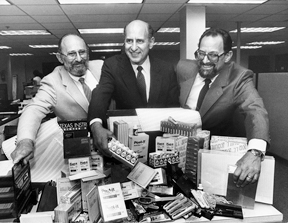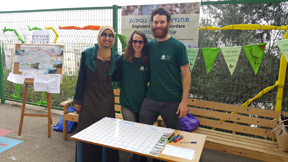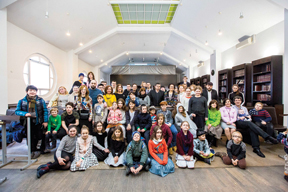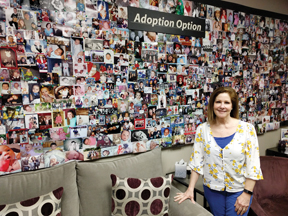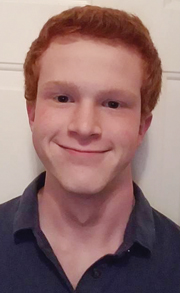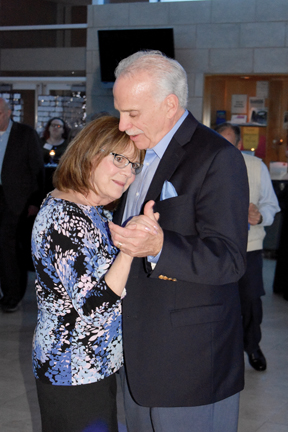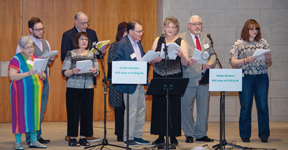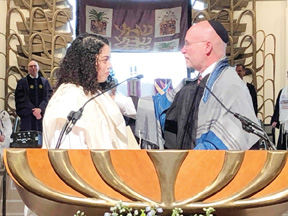Listening Post — 05-30-2019
LIFE IN PRISON — Last month a Jackson County jury found Brandon Howell guilty of a quintuple killing spree in a south Kansas City neighborhood in 2014. One of the victims was Susan Choucroun, an active member of the Jewish community.
We learned last week the convicted murderer will spend the rest of his life in prison. According to multiple local news sources, he was sentenced to five consecutive life sentences in prison without parole for each first-degree murder conviction.
Howell was convicted of a total of 11 felonies. He was also sentenced to life in prison for each of the four armed criminal action convictions, plus 15 years for the burglary conviction, plus one year for stealing. All those other sentences are set to run concurrently.
According to KSHB’s Andy Alcock, Choucroun’s brother, Ronald Sandhaus, who is the lone surviving member of his family after Howell shot and killed his sister, said in his victim’s statement that Choucroun, a lifelong teacher, had spent her last years volunteering to help people like Howell. He told Alcock she had really felt strong about helping people in the criminal justice system.
According to Fox4kc.com, “a memorial stands tall at the entrance of the Woodbridge neighborhood in South Kansas City” as a tribute to the five victims.
Smashed car windows outside a Chicago synagogue were not hate crime, police say (JTA) — The smashing of two car windows outside a Chicago synagogue was not a hate crime, according to local police.
A suspect has been arrested in the vandalism last week in West Rogers Park, a neighborhood with a large Jewish population. It was among 14 similar incidents in the neighborhood that took place over the course of May.
Police apprehended the suspect after finding him smashing windows, Alderman Debra Silverstein said in an announcement May 22.
“As suspected, the vandalism does not appear to have been a hate crime,” her statement said.
The vandalism occurred at about the same time as an attempted arson attack on a synagogue in another Chicago neighborhood.
VISITING ST. LOUIS? CHECK OUT THIS NEW KOSHER RESTAURANT — It’s been a week for reader tips, although I’ve also had this one for quite a while.
In April, Joe Pfefer let us know there’s a new kosher eatery in St. Louis. After further research I learned that Café Coeur, the St. Louis area’s first Japanese-Italian fusion restaurant, opened in early April at 10477 Old Olive Street Road in Creve Coeur.
It is owned by Moshe Plotnik and Yaniv Sides. Sides also owns restaurants in New York. Since it is kosher certified, it closes early on Fridays and remains closed on Saturdays for Shabbat and is also closed on Jewish holidays. Its menu includes kosher sushi, pizza, salads and Italian and fish specialties. For more information, call 314-439-8800 or go to cafecoeurstl.com.
CHUCKLE OF THE DAY — Last month while doing some last-minute Passover shopping, reader Susan Lebovitz spotted a jar of Brown Sugar & Spice Ham Glaze that is certified kosher. “Who knew?” she wrote, adding she thought our other readers might find it as funny as she did. I certainly did!

REPORT SAYS GREITENS TO DEPLOY TO MIDDLE EAST (JTA) — Eric Greitens, the former Missouri governor who resigned amid a sex scandal, has told friends and supporters he is planning to deploy with the U.S. Navy to the Middle East in the fall, The Kansas City Star reported.
The former Navy SEAL spoke of his plans in meetings over the past month, according to The Star.
Greitens, a 45-year-old Jewish Republican, resigned in May 2018 in the face of a possible impeachment in part because of charges stemming from an extramarital affair. He was accused of photographing the woman partially nude without her consent and illegally creating a political donor list from a separate veterans charity that he had founded. The charges have since been dropped.
Prior to the scandals, Greitens had been considering a presidential run. For two consecutive years he was a featured speaker at the Republican Jewish Coalition’s annual Las Vegas conference.



